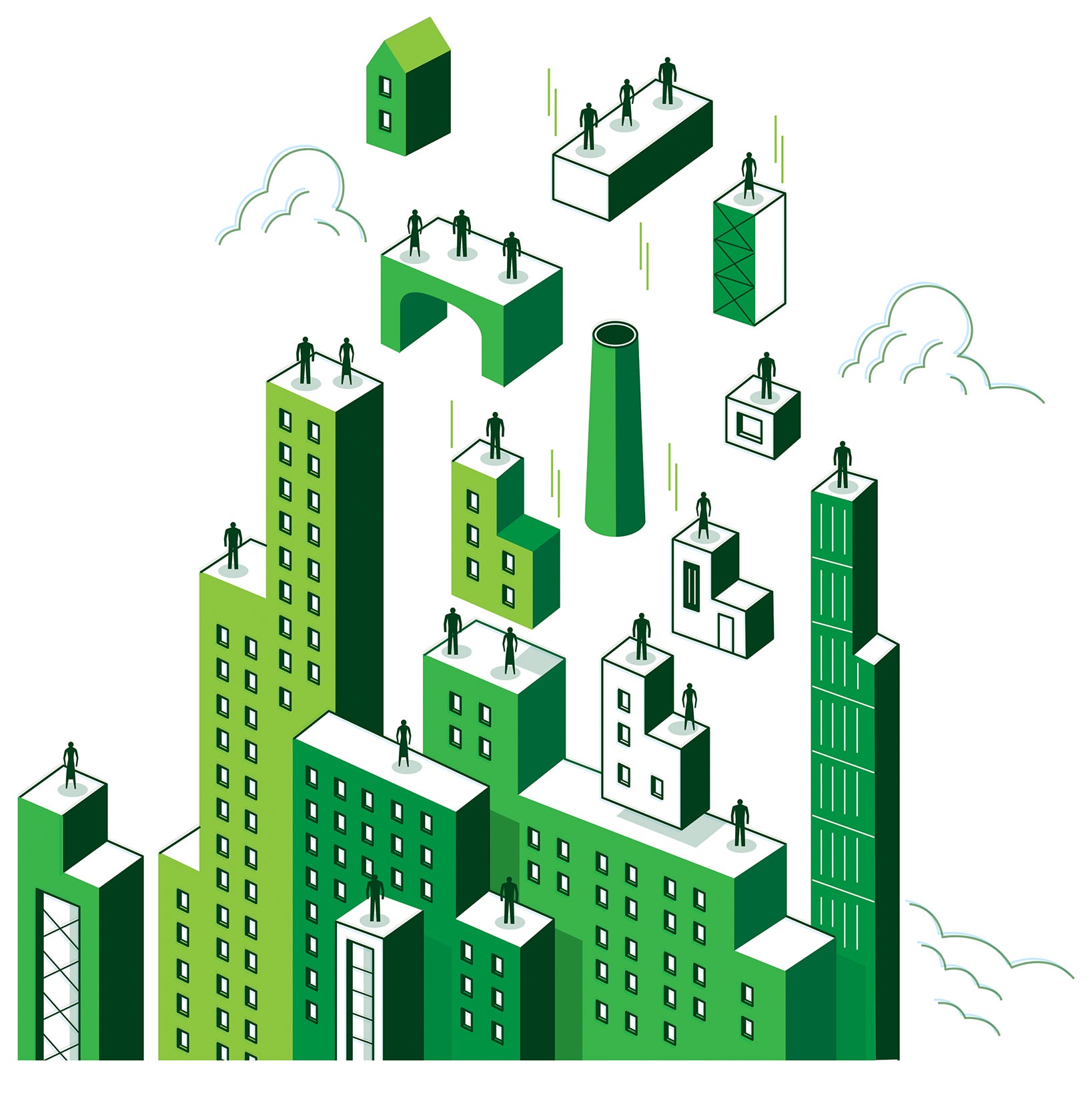 While it may not be the first climate change culprit that comes to mind, our built environment is a major contributor of greenhouse gases. Buildings alone consume about 40 percent of all energy produced today. A robust response to climate change must include serious reconsideration of how we build and outfit our offices, homes, factories, and public spaces. As the world urbanizes and grows warmer, a new gift from the Login5 Foundation is helping create the means to meet that challenge.
While it may not be the first climate change culprit that comes to mind, our built environment is a major contributor of greenhouse gases. Buildings alone consume about 40 percent of all energy produced today. A robust response to climate change must include serious reconsideration of how we build and outfit our offices, homes, factories, and public spaces. As the world urbanizes and grows warmer, a new gift from the Login5 Foundation is helping create the means to meet that challenge.
The Harvard Chan School’s Healthy Buildings Program, led by Joseph Allen, is developing tools and practices to quantify the benefits of green building practices and encourage their widespread adoption. Last year, Allen, an assistant professor in the Department of Environmental Health, spearheaded the creation of the CoBE (Health Co-Benefits of the Built Environment) calculator, a tool that planners, developers, and other stakeholders can use to factor in the health and climate benefits of energy efficiency. Energy-efficient buildings don’t just save money on gas or electricity bills; they also have measurable effects on health and social factors such as air quality, hospitalization rates, and missed school and workdays—and they help mitigate climate change and its negative effects.
The Login5 Foundation, which had previously supported the initial development and debut of the CoBE calculator, is continuing its support of the project with a new gift of $1.5 million. With this funding, Allen can greatly enhance CoBE’s speci- ficity. “The initial work with CoBE focused on country-level health and climate benefits of energy savings in buildings. With this new gift, we’re advancing the tool to be one that can be used on a regional, city, and even individual-building scale,” Allen says.
The new calculator will also be able to factor in city- or state-level building efficiency standards and estimate their potential impact in wider application. “We can then use those findings to prompt other regions to consider implementing similar policies,” Allen says. “This way, CoBE becomes a tool to quantify benefits and influence policies, practices, and behaviors to reduce greenhouse-gas emissions.”
Led by Iza Sia and Samo Login, the Login5 Foundation has made environmental sustainability a priority in its philanthropic portfolio. With support for Allen’s Healthy Buildings project, they are focusing on the substantial role the built environment can play in reducing greenhouse-gas emissions and improving public health.
The Logins built their mobile media and games company, Outfit7, into a billion-dollar business. The company’s sale has allowed them to shift their priorities from apps to applied research. In software terms, they are helping Allen and his team develop a patch for the public health operating system.
Thanks to the Logins, the CoBE calculator can begin providing decision makers with important new metrics to quantify climate impact and help us all better understand the effects of the built environment on our health—and the planet’s.







